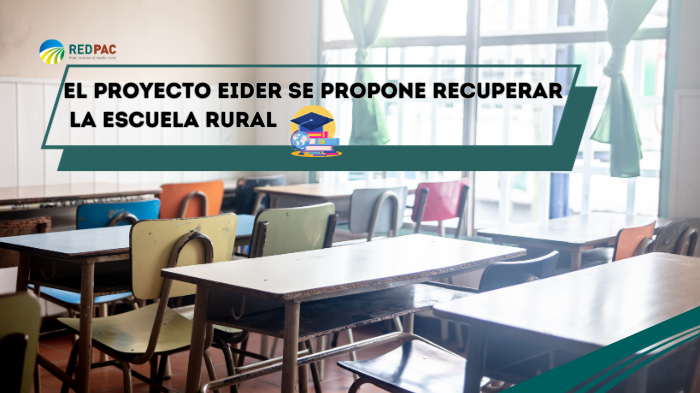
20 de November de 2023
Dinamización rural
EIDER is a three-year project that will implement pilot programs in municipalities seeking to retain their population or attract young people, with the goal of establishing services within the educational system and addressing rural challenges through collective entrepreneurship.
- The EIDER project seeks to promote rural development through education.
- This is a three-year initiative that includes the preparation and delivery of two full courses in the refurbished classrooms in the participating municipalities.
Education as a driving force for development in rural municipalities. Under this premise, the Federation of Cooperatives and Social Economy of Madrid (FECOMA) has launched the EIDER ("Education for the Promotion of Rural Development") project to combat the problem of depopulation in rural municipalities. And, through the restoration of education in rural areas, the project also seeks to develop essential services that can attract or retain newcomers.
The goal is to establish services within the education system while simultaneously addressing rural challenges through collective entrepreneurship in various sectors, including housing, agri-food, and social and health services.
Therefore, the EIDER project will implement pilot programs in municipalities that wish to retain their population or attract young people for settlement initiatives. It will also focus on regions that are making repopulation efforts and lack essential services. And—although the project's primary geographic focus is the Community of Madrid, as it is led by FECOMA—it is open to collaboration with other organizations in the cooperative and social economy sectors to extend EIDER to other regions.
Project objectives
EIDER is a three-year project that includes the preparation and delivery of two full courses in refurbished classrooms in participating municipalities.
It is launching as a pilot program with the ambition to expand in the coming academic years by incorporating more municipalities, more teachers, and more families.
Keys:
- Current geographical scope: 18 municipalities in 3 autonomous communities.
- Methodology: Creation of educational cooperatives that manage classrooms, with a high-value educational model and community-impact projects.
- Target audience: between 45 and 60 students with a minimum ratio of 3 students per classroom
- The EIDER project has been submitted to the PERTE ( National Electoral Commission for the Social Economy) to promote its implementation in a first phase (October 2023) and will continue through educational agreements with relevant institutions.
Goals:
- Open second- grade classrooms for Early Childhood and Primary Education in municipalities where schools have disappeared
- Open new vocational training programs/units geared toward the new model of economic and social development.
The Spanish Union of Teaching Cooperatives (UECoE ) and Agri-Food Cooperatives of Spain are also participating in the EIDER project . The initiative is supported by Vicens Vives, Mondragón University, and the Chair of Cooperativism and Social Economy at the Complutense University of Madrid. It is co-funded by the Community of Madrid.
If you're interested in learning more about the EIDER project, you can do so by emailing fecoma@fecoma.coop.









